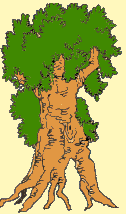Lexicon of medical terms
bile acids: acids released by the gallbladder and playing a role in the digestion of fat.
analgesic: a substance that abolishes sensitivity to pain.
hookworm: parasitic worm living in the duodenum.
anthelln ntic: a substance that causes the expulsion of intestinal worms.
antiplatelet agent: a substance that prevents the aggregation of blood platelets.
antiamoebic: a substance that kills amoeba.
antianea ic: a substance that prevents a decrease in the level of hemoglobin in the blood.
antiasth "ic: a substance that prevents fatigue.
antibacterial: -substance that decreases the growth of bacteria and can also destroy them.
anticoagulant: a substance that prevents blood clotting.
antidiabetic: a substance that lowers the level of glucose in the blood (hypoglycaemic).
antidiarrhoeal: a substance that stops diarrhea by reducing intestinal secretions or reducing intestinal motility.
anocytic antidre: a substance that reduces seizures due to drepanocytosis.
antiferental: a substance that decreases gas-producing fermentation in the intestine.
antifungal: a substance that decreases the growth of fungi and can also destroy them.
antiicteric: a substance that decreases the intensity of jaundice.
anti-inflammatory: a substance that reduces inflammation and the resulting pain.
antilithiasis: a substance that prevents and destroys gallstones or kidney stones.
antimalarial: a substance that fights against the onset of fever due to malaria by destroying the parasite.
antimitotic: a substance that prevents cell division.
antioedematous: a substance that opposes or decreases the appearance of edemas.
antipyretic: a substance that reduces fever.
antirachitic: a substance that opposes a bad calcification of the bones.
antiseptic: a substance that prevents the proliferation of pathogenic germs inside the body or on its surface.
antispasmodic: a substance that prevents contractures (spasms).
antitrichomonas: a substance that destroys trichomonads.
cough suppressant: a substance that reduces coughing fits.
anxiolytic: a substance that reduces anxiety.
arteritis: progressive obliteration of the arteries.
roundworm: parasitic worm living in the intestine.
asthma: an allergic condition resulting in difficulty in breathing.
gonorrhea: gonococcal urethritis.
bilharzia: parasitosis caused by schistosomes living in the human circulatory system.
fecal bowl: stool volume.
choleretic: a substance that increases the secretion of bile.
cholagogue: a substance that facilitates the evacuation of bile from the extrahepatic bile ducts, especially from the gallbladder.
cirrhosis: a liver disease caused by the progressive destruction of liver tissue.
colibacillosis: inflammation of the intestine caused by Coli bacillus.
colitis: inflammation of the intestine with intestinal fermentation.
depurative: substance having the property of eliminating impurities from the body.
diabetes: a metabolic disease characterized by a high level of sugar in the blood.
diuretic: a substance that increases urinary secretion.
drepanocytosis: inherited disease due to the presence of particular hemoglobin which deforms the red blood cells.
dysentery: diarrhea caused by a parasite or bacteria.
emollient: softening.
febrifuge: a substance that has the property of. bring down a fever. galactagogue: a substance that promotes milk secretion.
gastritis: inflammation of the stomach.
blood sugar: the level of sugar in the blood.
hemorrhoids: dilations of veins in the anal wall and rectum.
hemostatic: a substance that stops bleeding.
hepatitis: a disease caused by the liver by a virus.
hepatoprotective: protector of the essential functions of the liver.
. hypnofuge: a substance that keeps you awake.
hypoglycaemic: a substance that lowers the level of glucose in the blood.
lipid-lowering: a substance that lowers the level of lipids in the blood.
hypotensive: a substance that causes a drop in blood pressure.
jaundice: yellow coloration of the mucous membranes and integuments due to the increase in bilirubin.
insect repellent: a substance that repels insects.
intraperitoneal: injection of a substance through the peritoneum.
laxative: a substance that causes the acceleration of intestinal transit and the evacuation of stool.
leukemia: blood disease characterized by an overgrowth of stem cells in the bloodlines.
Oligospermia: it corresponds to an insufficient quantity of spermatozoa in the semen. Normally there are at least 20 million sperm per ml of semen. A number less than 10 million / ml may be responsible for infertility
Azoospermia: sperm fluid contains no sperm
Asthenospermia: it corresponds to a lack of mobility of the spermatozoa which experience difficulty in moving. There is normally at least 40% motile sperm in spermatozoides.In bellow of this threshold, we talk about asthenospermia.
Necrospermia: it is characterized by a high percentage of dead sperm (> 50%). It is often due to infections
Teratospermia: it corresponds to too large a quantity of malformed sperm and indicates the presence of an abnormally high rate of abnormal spermatozoa of around 50%
mollusc: substance which has the property of killing crustaceans.
neuralgia: discontinuous pain occurring in the territory of a nerve intermittently.
oxytocic: substance which excites contractions of the uterus, and which consequently hastens childbirth.
ear infections: acute inflammation of the middle ear.
malaria: parasitic disease caused by the development and multiplication of haematozoa of the genus Plasmodium.
pancreatitis: inflammation of the pancreas.
plasmodium: parasite responsible for malaria.
relaxing: substance which has the property of calming.
rhinitis: inflammation of the nose and respiratory tract.
taenifuge: substance which has the property of killing and provoking the evacuation of tapeworm.
ulcer: disease characterized by a deep and chronic loss of substance (ulceration) of the inner lining of the stomach and duodenum.
urethritis: inflammation of the urethra due to an infectious cause.
vaginitis: inflammation of the vagina.
varicose veins: abnormal dilation of veins.
vasodilator, vasoconstrictor: substances which have the property of dilating or contracting the veins and venules.
vermifuge: substance that causes the expulsion of intestinal worms.
Add a comment






















